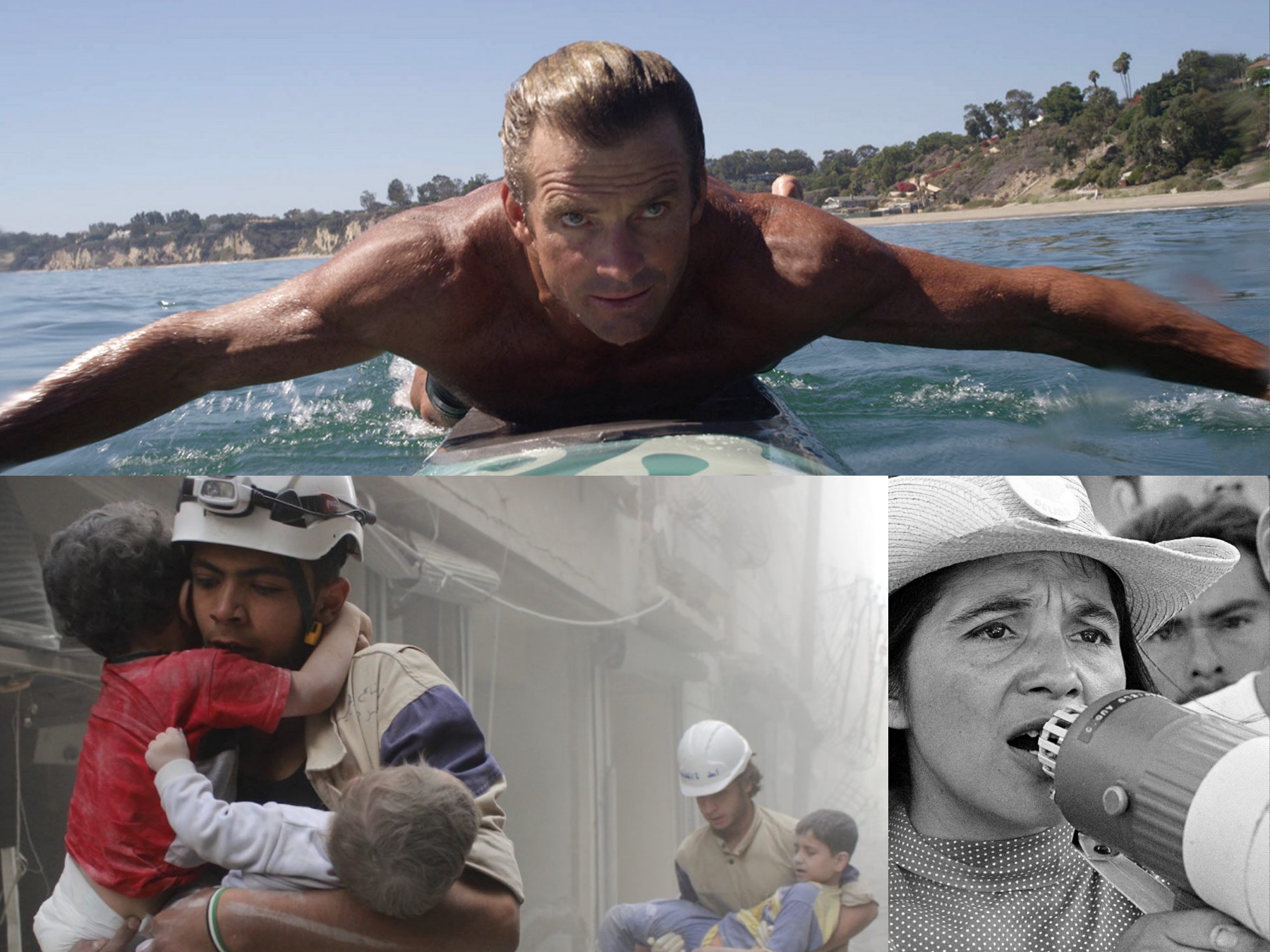
- Festivals
Sundance 2017: Documentary Heaven
Sundance is that rare festival that does not shy away from opening with a documentary. This year was no exception, and Al Gore’s urgent wake-up call with An Inconvenient Sequel: Truth To Power was just the beginning of a series that spanned every topic from Hulk Hogan to Jonbenet Ramsey, from law enforcement to water heist, protests, labor rights and kill safaris, from dancing to surfing to doping and gut wrenching war stories.
Cries from Syria falls in that last category. There was not a dry in the screening room after this powerful and heartbreaking film was shown. The filmmakers and especially its editor had to balance the need to make an honest portrayal of Syria and showing images so brutal, that they would have emptied the theater. Their goal: to tell the story through the eyes of the suffering in order to give the disenfranchised a voice in a war that no one in the world seems to want to hear. At its premiere a real Syrian refugee spoke to the audience.
Syria was a huge subject at this year’s festival, giving credence to the belief that what politics ignores art is left to deal with. Three other documentaries had their premieres at Sundance: Last Men in Aleppo follows two volunteer first-responders as they rescue civilians from explosions, City of Ghosts, about reporters who risk their lives to document the ISIS takeover. And The Good Postman deals with the reaction to Syrian refugees flowing into Europe, their story told in a Bulgarian border city.
Animal lovers could not sit through Trophy, a doc on big game hunting that never turns the camera away from the most gruesome scenes (think killing elephants and sawing off a rhino’s horn while the animal is still alive), but in the age of Trump it is perhaps necessary to show the ugly truth about topics most 1percenters will always defend. While a film about the same subject matter – the Austrian doc Safari, in competition at the Venice Festival last September – showed similar scenes, it focused on the absurdity of it all. Not Trophy. At times the audience felt this one was promoting the hunting.
The best documentaries combine information with an emotional core. Mind AND heart always wins the day. Or a festival competition. Dolores is such a film. Largely written out of history by the man himself, it is the story of Dolores Huerta, whose work on forming the first farm workers’ union is absolutely equal to her partner Cesar Chavez, but then again, she is a woman. And in the end it was up to one enlightened man to bring this activist’s story to the screen. Peter Bratt, brother of Benjamin, shows her fascinating life in a mixture of archival footage and interviews. If gender put a stop to her activism all those years ago, it made her the star of the women’s march last Saturday when she spoke most eloquently on equal rights. It’s a woman’s world after all.
Many docs this year focused on domestic matters. Quest follows an African-American family through the Obama years right up to last November’s election. The Rainey’s struggle and subsequent success plays against domestic and international world events and offers hope and light, not just for them but also for the viewer. Kudos to the filmmakers for compiling eight years of footage into 105 film minutes.
Water & Power: A California Heist is rightfully called the nonfiction Chinatown, with director Marina Zenovich being a huge fan of Polanski’s fiction classic. She also directed Roman Polanski: Wanted and Desired a few years ago. “The hunger for water is never-ending,” she told THR. “There are too many people wanting a precious resource that people are trying to privatize. So this film is like a wake-up call for that…We focus on California, but it’s happening everywhere. Water is being commodified. Look at the end of The Big Short — the Christian Bale character is investing in water. That’s an interesting clue. In light of the current political situation and the climate deniers, it’s all connected.”
But there was lighter fare. One in particular was a big surprise, coming from a director previously famous for her serious explorations of war topics. Rory Kennedy, youngest daughter of RFK, who had won awards for Ghosts of Abu Ghraib and Last Days in Vietnam returned with a personal passion project – about surfing. Take Every Wave: The Life of Laird Hamilton is visually as stunning as you would expect the best of the surf-genre films to be, but it also has humor and heart and takes you on one hell of a ride. Not even most fictional surfer movies come close to this kind of suspense. It was very appropriate that Kennedy introduced her film with these words: I never got to say this before, given the subject matter of my previous films, but now I can – enjoy the show!“ And we did.